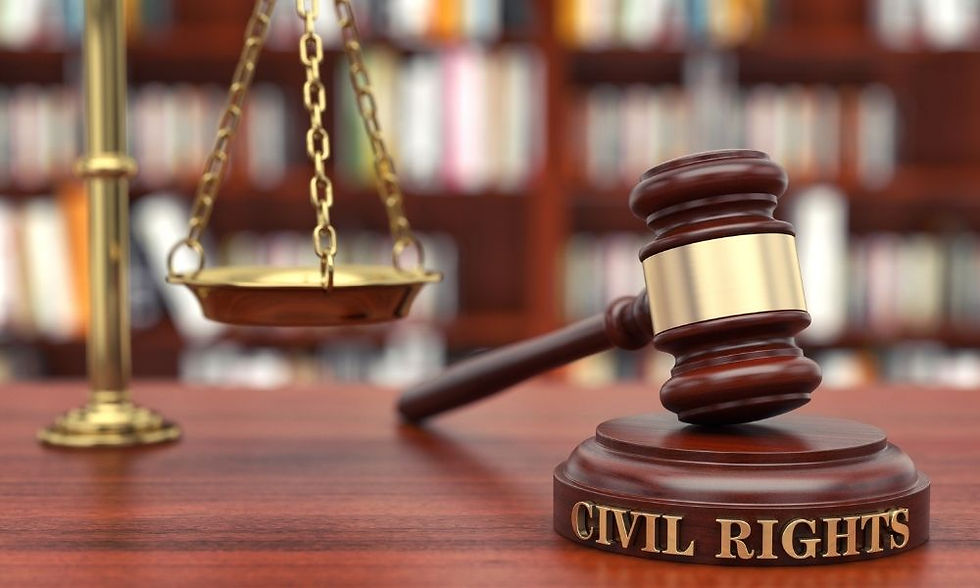Civil Case Showdown, Turn the Tables and Take Total Control in Court
- Raynal Kapadia
- Aug 25, 2025
- 4 min read
Table of Contents
Introduction
Why Civil Disputes Require Strategic Legal Action
The cost of weak legal representation
Advantages of experienced litigators
The Civil Litigation Process Explained
From filing to final judgment
Negotiation vs trial strategy
Selecting the Best Civil Dispute Lawyer
Qualities of a top performer in court
Importance of transparent fees
Conclusion
FAQs

Introduction
Civil cases can be complex, time-consuming, and emotionally draining. Whether it is a contract disagreement, a property conflict, or a business dispute, winning requires more than just facts—it demands a calculated strategy and strong courtroom representation.
When you are in a civil case showdown, the goal is not only to defend your position but also to gain control of the proceedings. This is where the expertise of a civil dispute lawyer becomes critical.
If you want professional support in handling civil disputes, you can explore Kapadia Legal’s Civil and Commercial Litigation Services for experienced legal assistance.
Why Civil Disputes Require Strategic Legal Action
Civil disputes often involve multiple legal and procedural challenges. Without a well-planned approach, you may find yourself at a disadvantage before the case even begins.
The cost of weak legal representation
Hiring an inexperienced or unprepared lawyer can lead to:
Poor evidence presentation that weakens your case
Missed filing deadlines causing unnecessary delays
Misunderstanding of procedural rules leading to legal setbacks
Settling for an unfavourable agreement due to lack of negotiation skills
In civil litigation, these mistakes can cost not just money, but also your reputation and long-term interests.
Advantages of experienced litigators
An experienced civil dispute lawyer can:
Identify the strengths and weaknesses of your case early on
Use procedural rules to your advantage in court
Build a compelling argument backed by solid evidence
Negotiate from a position of strength to avoid drawn-out trials
Present your case with confidence, clarity, and precision
The right legal strategy can turn a defensive position into an offensive one, giving you total control over the direction of the dispute.
The Civil Litigation Process Explained
Understanding the process of civil litigation is essential to knowing what to expect and how to prepare.
From filing to final judgment
Initial consultation and case review – Your lawyer evaluates your case, evidence, and legal options.
Filing of pleadings – Legal documents are filed to outline your claim or defence.
Discovery stage – Both parties exchange evidence, witness statements, and other relevant information.
Pre-trial motions and hearings – Requests to the court to address issues before trial.
Trial – Presentation of arguments, examination of witnesses, and submission of evidence.
Judgment – The court delivers its decision, which can be appealed if necessary.
Negotiation vs trial strategy
While many civil cases are resolved through negotiation or mediation, some disputes proceed to trial.
Negotiation offers a faster, less expensive resolution and can preserve business or personal relationships.
Trial becomes necessary when the other party refuses to compromise or when the dispute involves significant stakes.
An experienced lawyer will know when to push for settlement and when to fight it out in court.
Selecting the Best Civil Dispute Lawyer
Your lawyer is your strongest weapon in a civil case showdown, so making the right choice is essential.
Qualities of a top performer in court
Specialised expertise in civil litigation and related laws
Strong communication skills to present arguments persuasively
Proven track record of winning similar cases
Analytical ability to identify opportunities and risks quickly
Strategic mindset to adapt tactics as the case evolves
Importance of transparent fees
Legal battles can be expensive, and unclear fee structures can add unnecessary stress. A reliable lawyer will:
Provide a clear estimate of costs before proceedings begin
Offer flexible payment arrangements when possible
Avoid hidden charges by explaining every expense in advance
For a trusted and experienced option, you can explore Kapadia Legal’s Civil and Commercial Litigation, where transparency and client-focused service are priorities.
Conclusion
In civil cases, control is everything. By hiring the right civil dispute lawyer, you can shift the momentum in your favour, anticipate your opponent’s moves, and execute a strategy that maximises your chances of success.
Whether through negotiation or trial, strategic legal action ensures you are not just reacting to events, but actively shaping the outcome. When the stakes are high, expertise and preparation are the keys to winning the civil case showdown.
FAQs
Q1: What is the difference between a civil dispute lawyer and a general lawyer?
Ans. A civil dispute lawyer specialises in resolving legal conflicts between individuals or organisations, while a general lawyer handles a broader range of cases without a specific focus on litigation.
Q2: Can I settle my civil case without going to court?
Ans. Yes, many civil disputes are resolved through negotiation, mediation, or arbitration before reaching trial.
Q3: How long does a civil case usually take?
Ans. The duration depends on the complexity of the case, the court’s schedule, and whether both parties are open to settlement.
Q4: What should I bring to my first meeting with a civil dispute lawyer?
Ans. Bring all relevant documents, contracts, correspondence, and any evidence related to your dispute.
Q5: Where can I find an experienced civil dispute lawyer in Dandenong?
Ans. You can explore Kapadia Legal’s Civil and Commercial Litigation Services for expert legal representation.



Comments